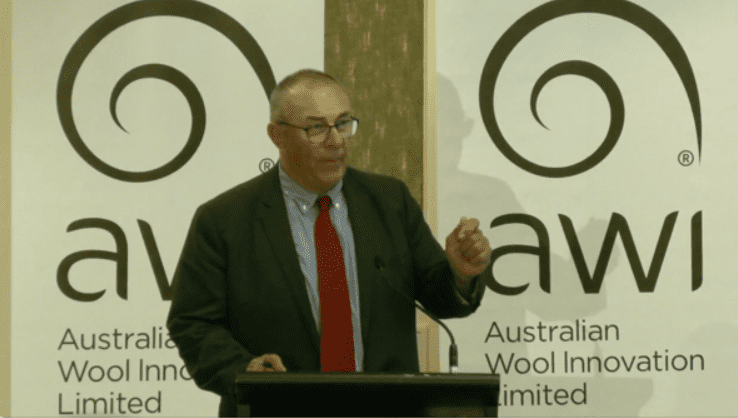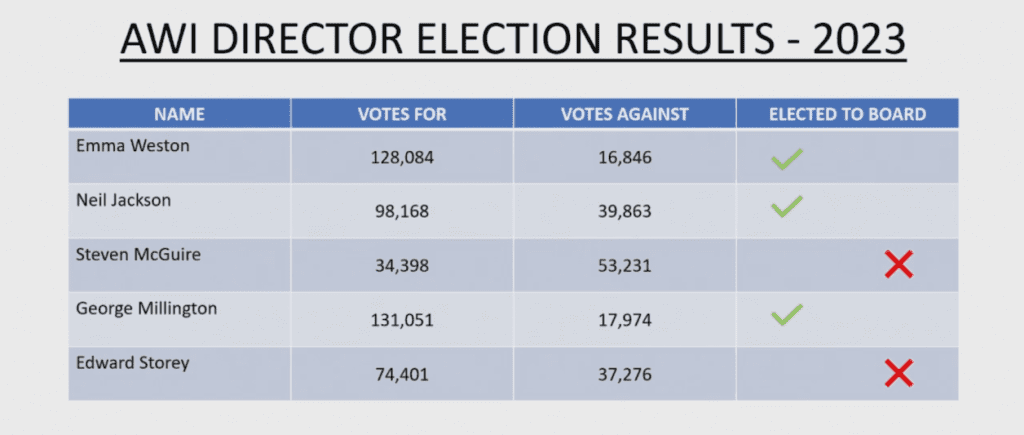
AWI chairman Jock Laurie addresses shareholders at the 2023 annual general meeting.
HOPES of a WoolProducers Australia-driven renewal of the Australian Wool Innovation board were dashed today at the 2023 AWI director election.
WOOL growers today elected the preferred candidates of Australian Wool Innovation’s board nomination committee – South Australian stud breeder George Millington, Western Australian grower and stud breeder Neil Jackson and AgriDigital chief executive officer Emma Watson.
Before the poll in Sydney today, the WPA board had recommended growers consider voting for former WPA president and New South Wales grower Edward Storey, former WPA director and Western Australian grower Steve McGuire and Mr Millington.
AWI’s board nomination committee, that included two retiring board members – David Webster from Western Australia and James Morgan from South Australia — last week recommended Mr Millington, Mr Jackson and Ms Weston to shareholders.
The AWI board also resolved that open proxies directed to the AWI chair will be voted in favour of Mr Millington, Mr Jackson and Ms Weston.
Mr Millington polled the most votes of any candidate – 131,051 – with just 17,974 against his election. This was followed by Ms Weston with 128,084 votes for and 16,846 against. Mr Jackson polled 98,168 votes with 39,863 against him, but this was a better result than Mr Storey’s 74,401 votes with 37,276 against. Mr McGuire attracted the least number of votes in favour of his election – 34,398 with 53,231 against him.

AWI chairman Jock Laurie welcomed the new directors and said all three will make a valuable contribution to the company and the important work AWI does on behalf of Australia’s wool industry.
“Their skills and experience will complement their fellow directors and I look forward to working with them.
“I would also like to thank the contribution from our retiring directors who each served the company and Australian wool growers with distinction,” he said.
AWI chief executive officer John Roberts told the annual general meeting the challenging nature of the company’s finances.
“Our revenue has reduced significantly as we share the impact or lower prices with our wool growers.
“This has forced us to re-focus and fine tune our targets and activities even further,” he said.
“This has meant a number of projects have had to be discontinued as we re-deploy funds to the areas where the business and the board see (as) being most pressing,” he said.
“In simple terms, at the front of the supply chain we have competing land uses on farm, and at the other end we know that consumers have competing fibre choices.
“Our job is always to work towards an environment where a wool growing enterprise stacks up compared to other farming pursuits and where a consumer can see and justify paying a premium to wear the world’s most versatile and sustainable fibre,” Mr Roberts said.



HAVE YOUR SAY